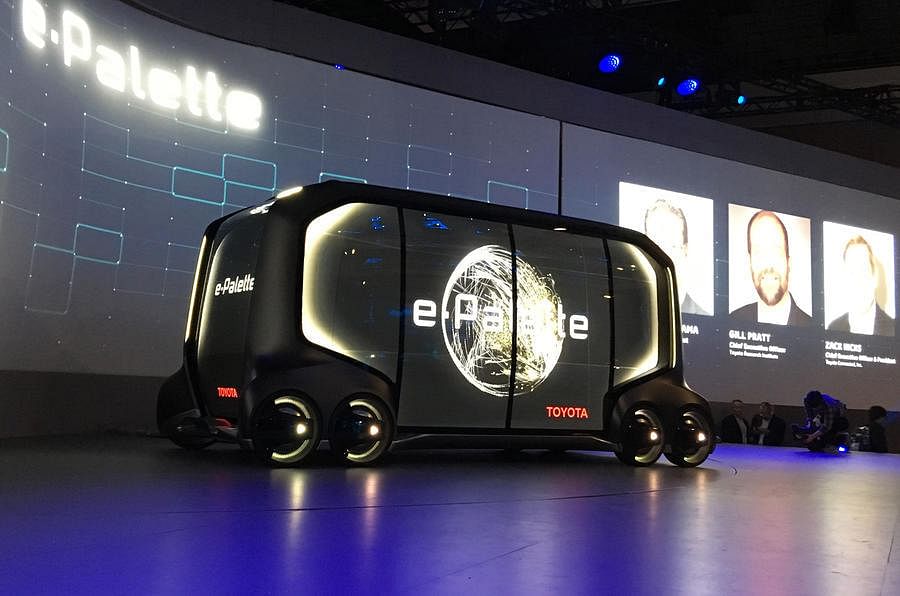Toyota launches new brand Kinto for car sharing, subscription and autonomous systems
New Kinto brand will lead Toyota's development of car sharing, subscription and autonomous transport services
Toyota has launched a new brand called Kinto, which will focus on mobility services including car-sharing, subscription services and autonomous transport systems.
The new brand will be introduced in Europe as part of Toyota’s efforts to expand its business beyond making and selling cars by taking advantage of new technology, including connected cars and autonomous systems.
Matthew Harrison, the boss of sales for Toyota and sub-brand Lexus, said the goal was to establish Kinto as a “brand that consistently delivers exceptional customer experience, whether moving close to home or travelling in other markets”.
Kinto will be an umbrella brand for a range of services, which will be introduced in selected cities and markets. They include Kinto One, a full-service leasing system that will merge vehicle, service and insurance costs into a single monthly payment. Kinto Flex will offer subscription-based car leasing with a ‘premium experience’.
 The Toyota e-Palette concept, shown at the Consumer Electronics Show in Las Vegas, could be developed into a mobility-as-a-service offering
The Toyota e-Palette concept, shown at the Consumer Electronics Show in Las Vegas, could be developed into a mobility-as-a-service offering
There will be a car-sharing service, Kinto Share, which will utilise hybrid vehicles on a self-service basis. Yuko – Toyota’s current car-sharing scheme, which runs in a handful of cities, including Dublin – will be rebranded.
Kinto Join will be a carpooling service that will help connect people who want to share their daily commute.
Toyota says other services are being evaluated, including ride-hailing. The services will be accessed via a mobile app with integrated payments.
More broadly, Toyota is aiming to increase the number of mobility services that it offers, with a focus on using data and vehicle connectivity to do so. It is also investigating how it can use future advances in autonomous vehicles to develop ‘mobility-as-a-service’ (MaaS) offerings, particularly using the e-Palette concept that it is currently developing.
The e-Palette is already set to be utilised during the Tokyo 2020 Olympic Games this year. Toyota will also operate a fleet in the 175-acre experimental city it is aiming to build in Japan.
Other car firms have also established sub-brands to investigate new mobility-based business models, including the Volkswagen Group’s Moia ride sharing sub-brand.
RELATED ARTICLES
Sept 2024 From R&D incentives to EV infrastructure: What auto components industry expects from Budget 2024
Sept 2024 From R&D incentives to EV infrastructure: What auto components industry expects from Budget 2024
US car majors hit the brakes on driverless cars
Ford Motor and Volkswagen to close self-driving startup Argo AI, due to lack of technology and clear regulations.
Autoliv and Geely to develop advanced safety tech for future vehicles
Scope of cooperation includes safety for high-level autonomous driving, intelligent steering wheel technology, a 360deg ...






 15 Jan 2020
15 Jan 2020
 8621 Views
8621 Views





 Autocar Pro News Desk
Autocar Pro News Desk




